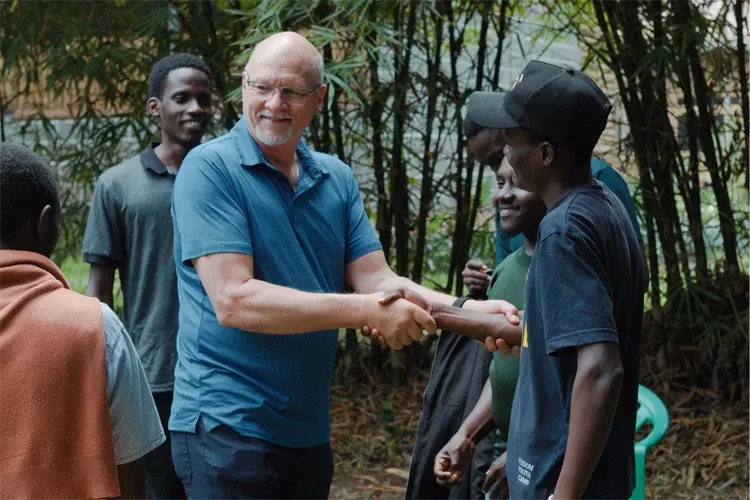I’ll never forget my first trip to Uganda. And now I’ll never forget the day Bank of America put my ministry’s help to the people there into disarray.
I had never seen poverty like I saw on that initial journey to the African nation. I walked by people carrying jugs to the nearest river—sometimes several miles away—to fetch water. While it’s common in America for college students to gain the “freshman fifteen,” there I met students who considered themselves blessed to get one meal a day. Students glad to eat one meal often didn’t know when they’d find their next.
But while I saw deprivation, I was also profoundly moved, and I knew I wanted to help them.
Founded in 2015, Indigenous Advance Ministries, based in Germantown, serves impoverished people in Uganda—including widows, orphans, prisoners, and single mothers—with the goal of lifting people out of poverty. Long-term, we hope to see lives changed as more and more people in Uganda embrace the life-changing Christian message of hope and salvation.
We partner with people like Rachael, who returned from Oxford University to the slums where she grew up to start a home for girls who have suffered abuse. We mentor students like Ivan Peter, a bright young man from a broken home who needed encouragement and support as he built a new life.
The ministries we partner with feed orphans, build wells for villages without access to water, and create job opportunities for young adults.
But earlier this year, our ministry and our work was thrown into disarray when we were suddenly debanked. Starting in April, Bank of America sent me a series of letters stating that it was closing our ministry’s deposit and credit card accounts within thirty days. I also received a letter stating that the bank was closing the account for our primary supporting church, Servants of Christ.
The whole ordeal was a nightmare for me and for the ministries I support.
Worst of all, we were forced to delay paychecks to our hardworking employees in Uganda by a week. These men and women don’t live paycheck to paycheck but sometimes meal to meal. And as bad as this was, it could have been much worse: we regularly feed orphans through our partner ministries, and thankfully, this cancellation came at a time that didn’t deprive children of the chance to eat.
I spent many frustrating hours on the phone and in person at my local Bank of America branch. But I was never given a specific reason for why the bank suddenly closed our accounts. The only responses employees would provide was reading from the letters I had received, which said merely that Bank of America no longer works with our “business type,” and that our ministry “no longer aligns with the bank’s risk tolerance.”
Had I done something wrong? No one at Bank of America could tell me. In fact, it wasn’t until late August that I heard anything beyond the minimal explanation contained in the letters as to why our accounts were canceled. That’s when news broke that we had worked with Alliance Defending Freedom to file a consumer complaint asking Tennessee Attorney General Jonathan Skrmetti to investigate whether our account was canceled because of our religious views.
When a reporter with the international outlet Daily Mail inquired, Bank of America suddenly conjured a series of after-the-fact and conflicting excuses for why they had canceled our accounts several months prior. None of these rationales appear to hold water, and none attempt to explain why our church’s bank account was canceled.
The reality is that someone at Bank of America decided to close our account, and we’re left at guessing the reason. Bank of America has little insight into the lives that our ministry touches every day. Bank of America hasn’t witnessed the smiles on the faces of children when we hand them something as simple as a bottle of water—or the relief etched on young graduates’ faces when we assure them we can provide honest jobs that put food on their families’ tables. Real people in Uganda rely on us, and their needs matter.
If Bank of America can arbitrarily cancel Indigenous Advance and Servants of Christ’s accounts, they can do the same thing to anyone else for any reason. That’s why we’re calling on Attorney General Skrmetti to investigate.
This should never have happened to us, and I don’t want it to happen to anyone else. That’s why we’re standing up. We’re not the first victim of the debanking phenomenon, but we’d like to be the last.
Steve Happ is the founder of Indigenous Advance Ministries, which filed a consumer complaint against Bank of America with Tennessee Attorney General Jonathan Skrmetti.



